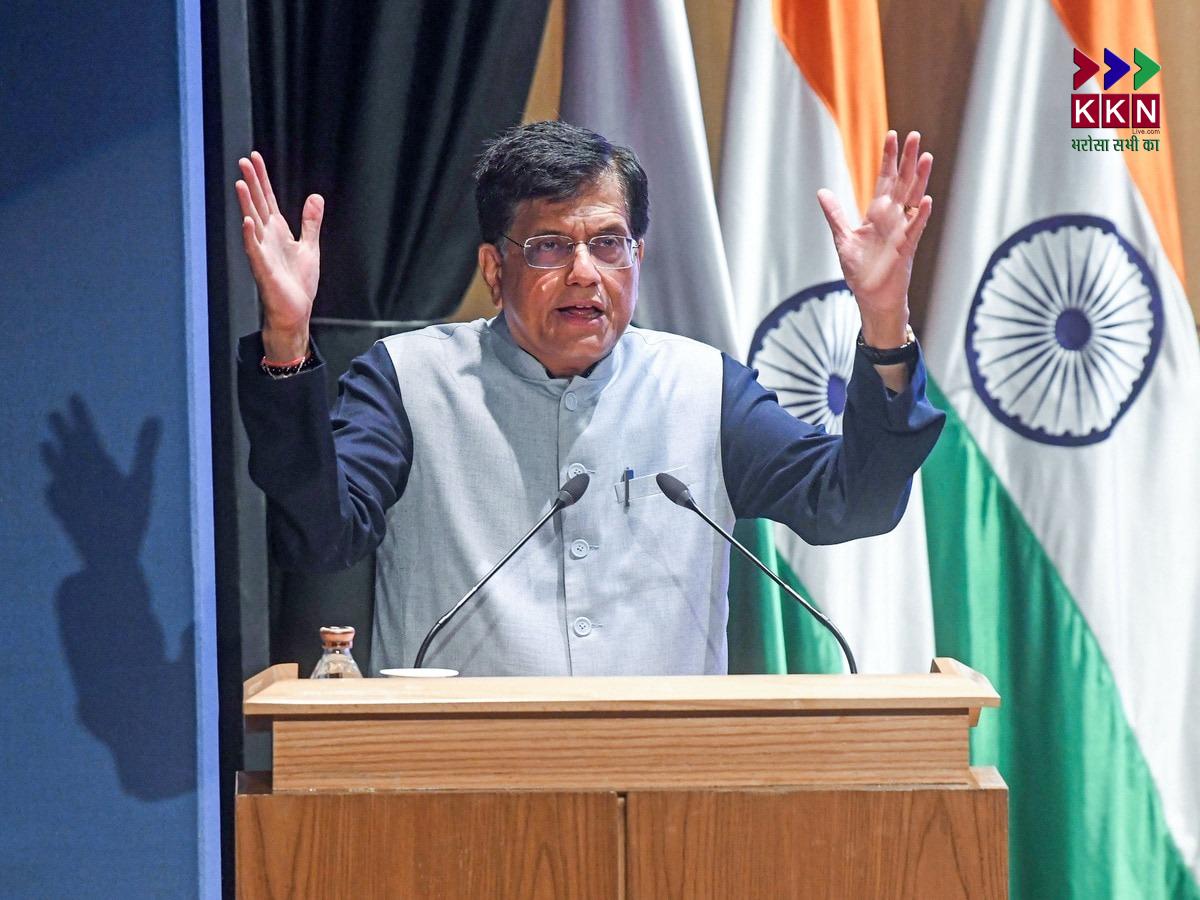
The trade dispute between India and the United States has intensified after new tariffs imposed by Donald Trump. Central Commerce and Industry Minister Piyush Goyal has responded strongly, stating that India will neither bow down nor compromise.
He emphasized that India will instead focus on strengthening its presence in emerging global markets. The minister reassured businesses and exporters that despite heavy tariffs, Indian exports will not decline this financial year.
Piyush Goyal’s Assurance on Exports
Speaking at a private event, Piyush Goyal expressed confidence in India’s economic resilience. He declared that India’s exports will grow compared to the previous financial year.
According to him, the government is preparing new policies to support various industries. These steps will ensure that Indian exporters continue to find opportunities despite global trade challenges.
He assured entrepreneurs, “I promise you that our exports this year will be higher than last year. There will be no decline.”
India’s Stand on Free Trade Agreements
The minister also clarified India’s stance on international trade agreements. He said India has always been willing to sign fair free trade agreements.
However, he stressed that India will never accept discrimination. “If someone discriminates against us, it becomes an issue of dignity for 1.4 billion Indians. We will never bow down,” he remarked.
This comment came as India responded to the United States’ imposition of new tariffs on Indian goods.
Details of the Trump Tariffs
On 27 August, the Trump administration announced fresh trade restrictions on India. These included a 25 percent tariff on Indian exports and an additional 25 percent tariff linked to India’s purchase of oil from Russia.
The decision raised fears of reduced exports from India to the US. Analysts believe that thousands of Indian jobs may be at risk because of these tariffs.
Despite this, Goyal maintained that India will withstand the challenge and continue building new global partnerships.
US Justification vs Indian Concerns
The United States claims the tariffs are aimed at pressuring Russia over the Ukraine conflict. According to Washington, restricting trade with countries buying Russian oil is part of its geopolitical strategy.
However, critics point out that America itself continues trading with Russia in certain sectors. Moreover, China, the largest buyer of Russian oil, has not been targeted with similar sanctions.
This selective approach has raised questions about the fairness of the US measures. For India, the tariffs are not only an economic issue but also a question of sovereignty and fairness.
India’s Refusal to Compromise on Agriculture and Dairy
One of the contentious points in the trade talks is the dairy sector. The United States has been pushing India to allow American dairy products into its domestic market.
India has categorically rejected this demand. According to the minister, such a move would be devastating for Indian farmers. “Opening our dairy sector to American products would be suicidal for millions of Indian farmers,” he said.
India has also made it clear that its agricultural products will remain protected from external pressure.
Trump’s Use of Tariffs as a Weapon
During his second term, Donald Trump has increasingly used tariffs as a tool of foreign policy. Trade restrictions have been imposed on several countries, including allies and partners.
This strategy has disrupted the global supply chain and created instability in international markets. For India, the tariffs are part of a larger pattern of US protectionism that challenges free trade principles.
India’s Strategy to Counter Tariffs
India is now focusing on diversifying its export markets. Emerging economies in Asia, Africa, and Latin America are being prioritized.
By expanding into new markets, India hopes to reduce its dependence on the US. Government initiatives are also targeting self-reliance in key industries, ensuring that domestic producers remain competitive.
Piyush Goyal highlighted that India is committed to long-term reforms. The focus will remain on strengthening production, improving logistics, and enhancing the competitiveness of Indian goods globally.
Potential Impact on Jobs and Economy
The new tariffs are expected to create short-term disruptions. Exporters in sectors such as textiles, pharmaceuticals, and engineering goods may face challenges.
However, the government believes that proactive measures will help minimize losses. Efforts are underway to provide exporters with alternative trade routes and financial support.
According to experts, the true test will be in sustaining growth while navigating these restrictions.
Global Reactions to US Tariffs
Other countries have also raised concerns about Trump’s aggressive use of tariffs. Many believe that unilateral trade actions undermine the rules of the World Trade Organization (WTO).
Global trade partners are now looking at forming alliances to reduce dependency on the US market. India’s decision to expand ties with countries outside the Western bloc aligns with this global trend.
The Donald Trump tariff dispute marks another chapter in the ongoing global trade war. For India, the challenge is significant, but the response from Piyush Goyal shows determination.
By refusing to bow down and focusing on new markets, India aims to turn this crisis into an opportunity. Farmers and exporters remain at the center of the government’s strategy, ensuring that domestic interests are protected.
As the global supply chain faces disruption, India’s resilience and adaptability will be tested. For now, the message from New Delhi is clear: India will not compromise its dignity or economic sovereignty, no matter how intense the tariff war becomes.


